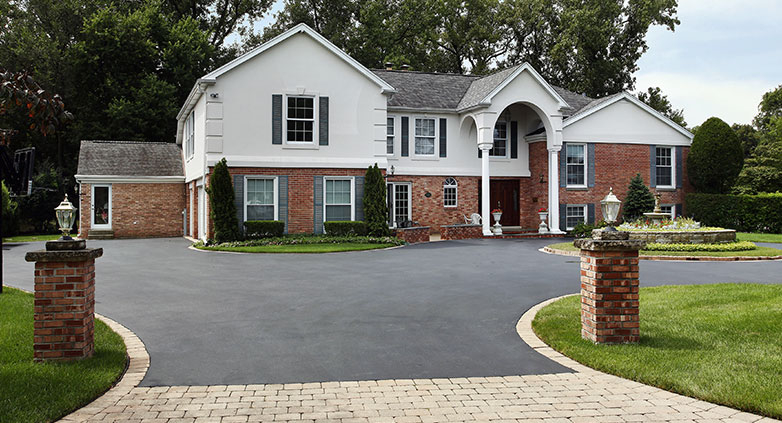Cheapest Time of Year to Pave Driveway – Strategic Planning
When considering paving or repaving your asphalt driveway, the timing can significantly impact both the quality and cost. Weather is a key factor; incorrect timing can lead to increased maintenance and costs due to early degradation.
The optimal time for paving, balancing cost and quality, largely depends on temperature. Asphalt paving is best done when air and ground temperatures are consistently above 70°F. This requirement typically leads to three prime periods:
- Late Spring to Early Fall: This timeframe usually offers ideal weather conditions for asphalt work.
- Summer: Offers consistent warm temperatures, making it a preferred choice.
- Early to Mid-Fall: Before it gets too cold, this period can still accommodate effective paving.
Read on to discover how these specific seasons represent the ‘cheapest time of year to pave a driveway, aligning perfectly with cost-effective driveway paving strategies.
1. Late spring to early fall
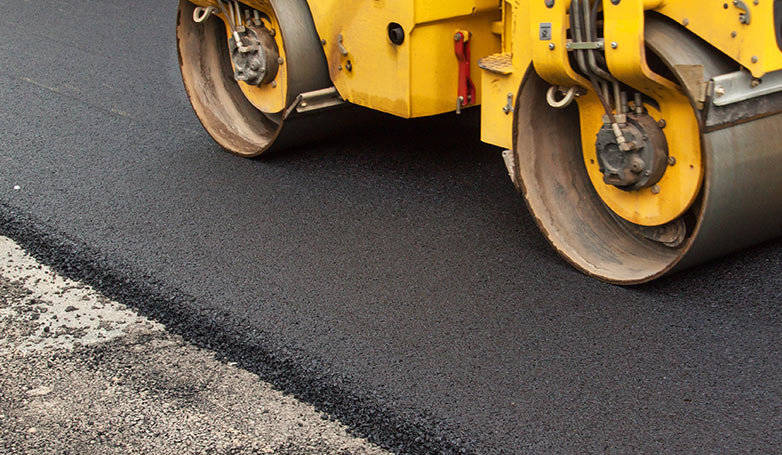
Early spring is usually accompanied by precipitation or melting snow; hence, it is best to put off your paving project until late spring and early fall when the weather conditions are dryer.
In addition, wet weather can also render the construction of asphalt driveway more complicated, as water can penetrate the material, making it require more time to set. Warmer air temperatures between late spring and early fall help keep the mix at a steady temperature. It helps it preserve a flexible consistency.
2. Summer
Paving asphalt driveway during summertime enables the surface coating to cure out before winter arrives. This will also make the sealing more durable than before. When there is less humidity, the seal coating often solidifies more.
Summertime, often considered the cheapest time of year to pave a driveway, provides the optimal conditions for driveway and parking lot improvements. The warm weather, extended daylight hours, and high overnight temperatures create an ideal environment for asphalt’s rapid curing. Asphalt performs exceptionally well in hot weather, enhancing the speed and efficiency of the paving process
Besides this, it is easier to work in the summertime compared to any other time of year. Summer is perfect for installing a new driveway or fixing an existing one, so capitalize on the summer heat to guarantee that your next driveway project is successful.
3. Early to Mid-Fall
Many people assume that paving a driveway during the fall is unsafe and can easily cause the driveway to deteriorate. But frankly, it all depends on where you live and the temperatures around you at night. The seal coating curing process requires a night temperature of at least 50 degrees.
Fall is an excellent time of year to carry out your pavement project. Also, being proactive with your driveway project can save some money for you in the long run.
Why does the time of year you pave your driveway matter?
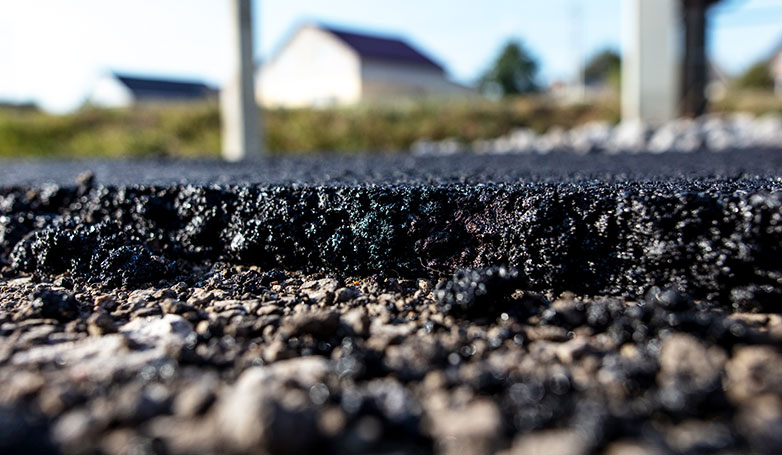
Choosing the right time of year to pave your driveway is not merely a matter of convenience; it’s a crucial decision that affects the quality, durability, and overall success of your paving project. The interplay between temperature and the properties of asphalt is a key factor to consider.
Temperature and Asphalt Stability
One of the key reasons the time of year is critical in paving driveways relates to temperature’s impact on asphalt stability. Warmer weather maintains the hot mix asphalt in a stable and flexible state for an extended period. This is crucial because for asphalt to compact and set effectively, it must be kept within a temperature range of 175°F to 275°F. In this range, asphalt remains pliable, allowing for proper laying and shaping.
Challenges of Cold Weather Paving
During colder months, particularly in winter, paving becomes more challenging. As soon as asphalt is removed from its transportation truck, it begins to cool rapidly. This accelerated cooling in cold weather can make it difficult to work with the asphalt, as it hardens quickly and becomes less malleable. Furthermore, if the ground is frozen, the asphalt may not adhere properly to the base layer. The underlying asphalt can become loose or even detach from the binder, leading to structural weaknesses.
Advantages of Warmer Weather Paving
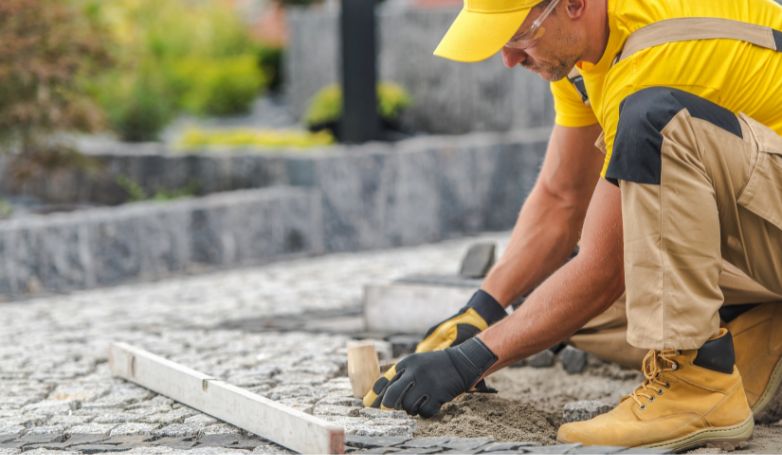
In contrast, warmer temperatures simplify the paving process. They allow for easier pouring, spreading, and smoothing of the asphalt. This not only facilitates the work of driveway contractors but also contributes to optimal outcomes. In warm conditions, contractors have sufficient time to meticulously lay and shape the asphalt. As it cools, the asphalt solidifies uniformly, resulting in a more durable and long-lasting surface.
Understanding these factors highlights the importance of choosing the right time of year for driveway paving. It’s not merely a matter of convenience; it’s a critical decision that significantly impacts the quality and longevity of your driveway. This understanding elevates the importance of selecting the cheapest time of year to pave a driveway, not just in terms of cost but also in ensuring the best possible outcome for your paving project.
How can weather and temperature affect the paving of your driveway?
When it comes to driveway paving, understanding how weather and temperature influence the process and the final product is crucial. These elements play a significant role in the longevity and integrity of your asphalt driveway.
Structural Deterioration Due to Weather Conditions

Extreme weather conditions, ranging from scorching sun rays to heavy downpours, can significantly impact the structure of your asphalt driveway. Over time, these elements can cause the asphalt to weaken, leading to deterioration. This degradation is not just limited to surface wear but can also affect the deeper layers of the driveway, compromising its overall strength.
Temperature-Induced Damage: Expansion and Contraction
The asphalt material is sensitive to temperature changes, which can lead to expansion and contraction of your driveway. As temperatures rise, the driveway material expands, and as they fall, it contracts. This continuous cycle, especially in regions with significant temperature fluctuations, can lead to the formation of cracks. These cracks, if not addressed, can become significant over time, allowing water infiltration and further damage.
Slab Curling and Its Implications
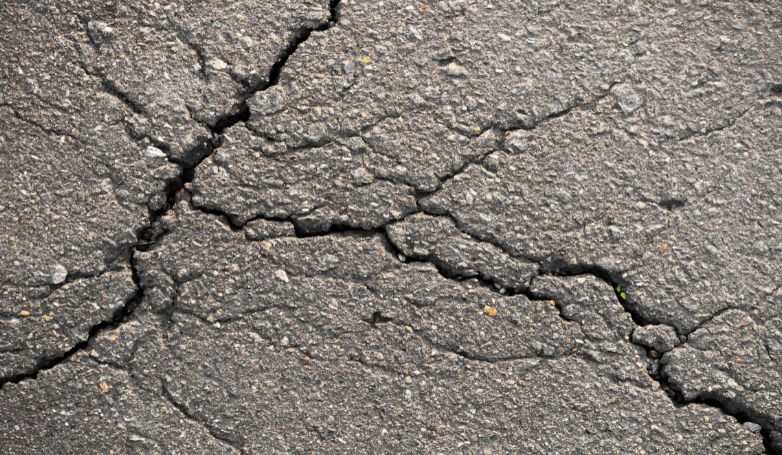
In cases where the driveway material is overly rigid, slab curling can occur. This phenomenon happens when the edges of the asphalt slab begin to curl upwards or downwards, usually due to uneven drying or curing of the material. While minor fluctuations in temperature and minimal curling might not pose an immediate threat, significant slab curling can compromise the driveway’s integrity.
Water Infiltration and Its Effects
Cracks and damages on the surface of an asphalt driveway can lead to another significant issue – water infiltration. Rainwater, groundwater, or surface water can seep through these cracks, reaching the lower layers of the driveway. This water absorption can weaken the bond between the asphalt binder and the aggregate, further degrading the structure. In freezing conditions, trapped water can expand, exacerbating the cracking and damage.
Understanding these factors is crucial for anyone planning to pave or maintain an asphalt driveway. By considering the potential impacts of weather and temperature, you can take preventative measures to ensure the longevity and durability of your driveway.
Other factors that can impact the cost of paving your driveway

Besides the previously mentioned elements such as weather conditions, optimal timing (including the cheapest time of year to pave a driveway), paving thickness, and driveway shape, there are additional crucial factors that can substantially impact the total cost of your driveway paving project. A comprehensive understanding of these factors is invaluable in formulating a more precise and realistic budget for your paving venture.
Base Material and Preparation
The type of base material used and the preparation required for laying the asphalt are significant cost factors. A solid, well-prepared base is essential for the longevity of the driveway. This might involve removing the old driveway material, grading, and compacting the soil, and laying a suitable sub-base material like gravel. The cost can vary depending on the extent of preparation needed and the quality of materials used for the base.
Drainage System Installation
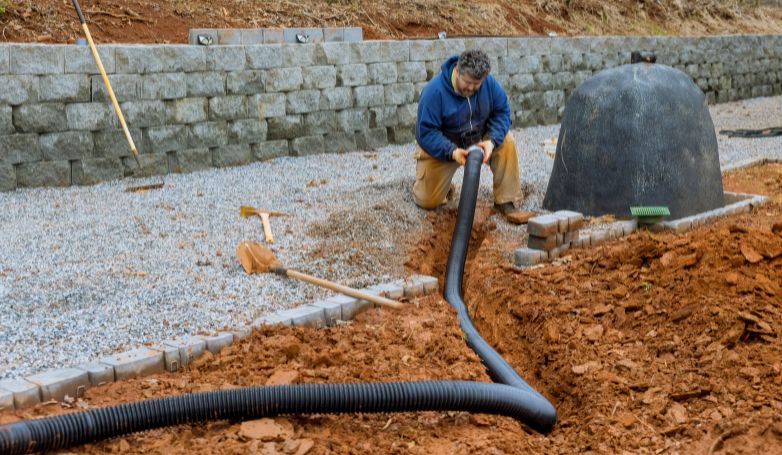
Ensuring effective drainage is essential to preserve the structural integrity of an asphalt driveway. Poor drainage can lead to water pooling, which can weaken the asphalt and lead to cracks or potholes. Installing or improving a drainage system, which may include grading the driveway properly, adding drainage channels, or installing culverts, can add to the overall cost. However, this is a crucial investment to prevent future water damage and maintain the driveway’s condition.
Paving Thickness
As previously mentioned, the thickness of the asphalt plays a crucial role in the driveway’s durability. Thicker paving, while more expensive, is often necessary for driveways that will bear heavier loads.
Driveway Shape/Slope
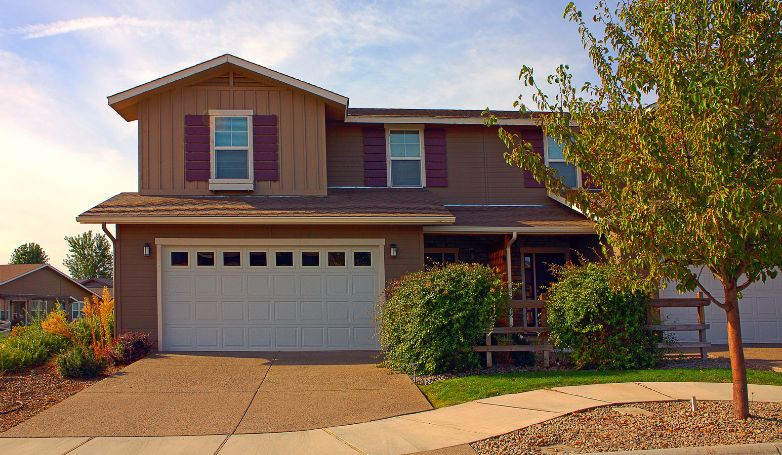
Unique shapes or significant slopes in a driveway can increase the complexity and, consequently, the cost of the paving project. Non-standard designs require more intricate work and potentially more materials.
Material Quality and Type
The quality and type of asphalt used can also impact cost. Higher-grade asphalt with better longevity and resistance to weather conditions might be more expensive upfront but can offer better value in the long run.
Regional Cost Variations
Labor and material costs can vary significantly depending on your geographic location. Areas with higher living costs may see higher prices for driveway paving. Additionally, the availability of materials in your region can also affect the overall cost.
Taking into account all these aspects, it becomes clear that the costs associated with driveway paving are affected by a wide range of elements, each playing a role to different extents. Strategically balancing these factors, such as the cheapest time of year to pave a Driveway, with your specific requirements and budgetary constraints, is essential for the success and cost-effectiveness of your driveway paving endeavor.
How to protect your asphalt driveway from the impact of seasonal changes
The impact of seasonal weather changes can take a significant toll on the condition of your asphalt driveway. Implementing the right maintenance strategies is key to protecting it from these elements. Here’s a closer look at how to effectively preserve your driveway’s integrity through different seasons.
Regular Resealing: A Shield Against the Elements
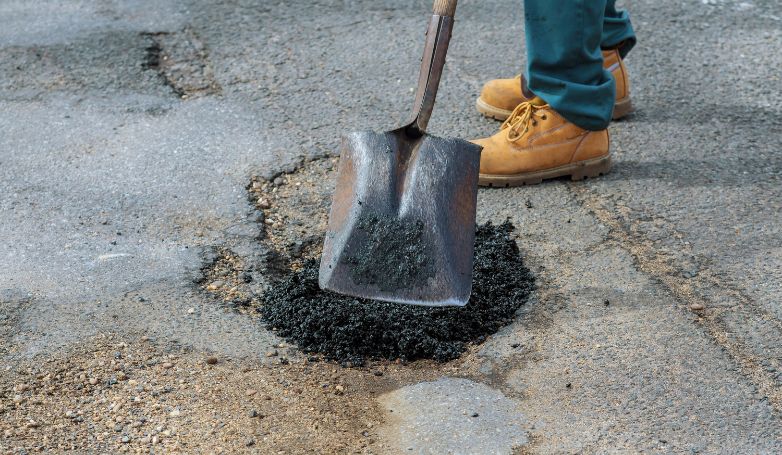
One of the most effective ways to protect your asphalt driveway is through regular resealing. This process involves applying a protective sealant over the surface of your driveway. The ideal frequency for resealing is typically every two to three years, but this can vary based on the level of wear and exposure to harsh weather conditions. Resealing provides a barrier against water penetration and helps to shield the asphalt from the damaging effects of UV rays and high temperatures. This preventive measure not only extends the life of your driveway but also maintains its aesthetic appeal.
Prompt Repair of Cracks and Holes: Preventing Further Damage
Early detection and repair of any cracks or holes in your driveway are crucial. These imperfections, if left unattended, can lead to more significant and costly damages. Cracks and holes can allow water to penetrate the surface and reach the base of the driveway, potentially leading to issues like erosion or frost heave in colder climates. By promptly patching these defects, you not only enhance the safety and appearance of your property but also prevent the deterioration of your driveway. It’s important to address even the smallest cracks as soon as they appear to avoid the likelihood of water infiltration and subsequent expansion of the damage.
Additional Protective Measures
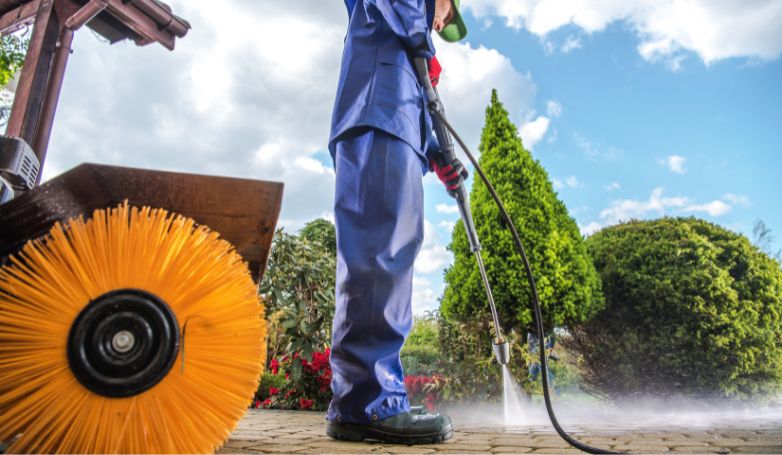
Besides resealing and repairing, there are other steps you can take to further protect your driveway:
- Regular Cleaning: Keeping the driveway clean from debris, chemicals, and spills can prevent surface damage and staining.
- Drainage Management: Ensure that your driveway has proper drainage to avoid water pooling, which can weaken the asphalt.
- Traffic Management: Heavy vehicles or equipment can stress your driveway. Limiting their frequency or duration on the driveway can help maintain its condition.
Adopting these maintenance practices will greatly assist in protecting your asphalt driveway from the adverse effects of seasonal changes, ensuring its longevity and functionality.
Conclusion
Like any other project, successful asphalt pavement involves thorough planning and consideration of various factors to ensure you remain within budget. If you’re seeking guidance on determining the cheapest time of year to pave a driveway, consulting with specialists like those at Paving Finder can be invaluable.
Selecting the appropriate time of year for your driveway paving project is not only crucial for enhancing its longevity but can also lead to significant cost savings. Moreover, regular and consistent maintenance is key to extending the lifespan of your driveway, often beyond initial expectations.

